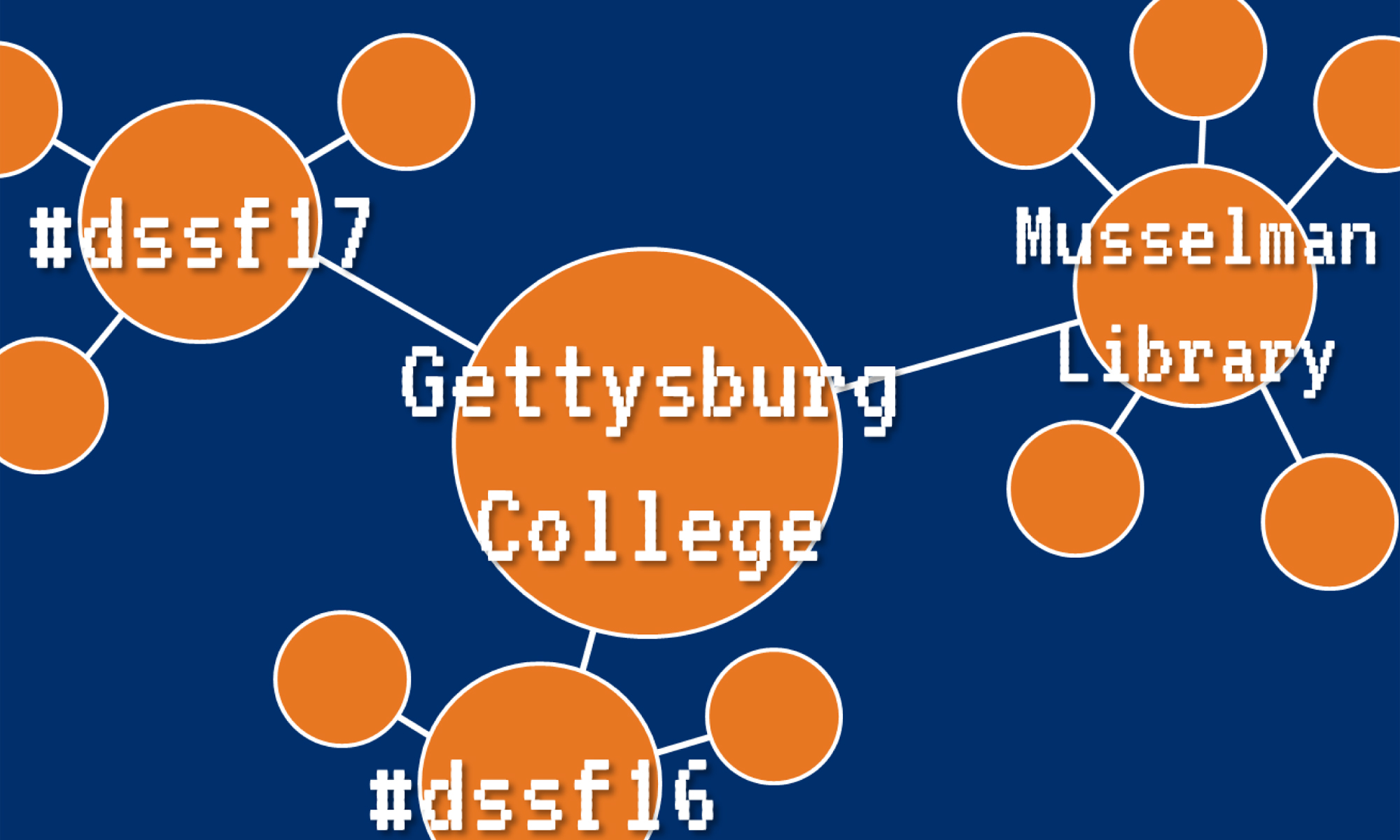Blog Post – Due Wednesday, July 5
As digital humanities practitioners at a small liberal arts college, it’s important to be aware of criticism of digital humanities work, as well as negative perceptions of liberal arts schools. Read the following article:
“Neoliberal Tools (and Archives): A Political History of Digital Humanities” By Daniel Allington, Sarah Brouillette, David Golumbia
Given what you have learned so far about digital humanities and digital scholarship, what is your reaction to this article? Do you agree with the authors, disagree, or somewhere in between? Make sure you are acquainted with the concept of neoliberalism. The article “The Neoliberal Arts: How College Sold Its Soul to the Market” by William Deresiewicz may provide some additional context. Once you’ve read the article and formulated some thoughts, check out some responses. Feel free to incorporate their arguments into yours, or refute them.
Monday, June 26
8:30am-9am: Check-In (Library 014)
9am-Noon: Workshop: Data Management and Data Cleanup with Open Refine (Library 014, Public Session)
At this year’s PaLA conference at Bucknell, keynote speaker Laurie Allen said “The web is not a good platform for making permanent, stable knowledge.” This is all the more reason for digital scholars to make the data behind that knowledge available, usable, and recoverable. Today we will discuss what research data is and the importance of treating data with the same care as a finished scholarly project.
Readings and Assignments
- Look through the MoMA Dataset (these are .csv files, so you will need to download them and open them with Excel for them to make sense)
- Visit MANTRA, a data management resource from the University of Edinburgh, and review these lessons: Research data explained, File formats & transformation, Data management plans, Storage and security.
- Read “What To Keep And Why” from Christine Borgman’s book Big Data, Little Data, No Data: Scholarship in the Networked World.
- Install OpenRefine on your laptop.
- DCC and ICPSR data management plans
- higherEdExpenditures2008 (1)
Noon-1pm: Lunch (on your own)
1pm-4:30pm: Research/Project Work (on your own)
Tuesday, June 27
8am-4:30pm: Research/Project Work (on your own)
Wednesday, June 28
8:30am-9am: Check-In (Library 014)
9am-Noon: Workshop: Visualizing Data with Tableau Public (Library 014, Public Session)
Miriam Posner defines data visualization as “Graphical representation of data. We visualize data so that it’s easier to notice aspects and features of the data. Our current moment is obsessed with data visualization, perhaps because we’re moving so quickly that there’s more information to sift through. It’s also expected that we do more now, because we have these tools.” With so much data to try to process, and not enough time to do so, it makes sense to process it in a way that appeals to visual culture. While relationships between data may or not may be apparent simply from looking at them as numbers, adding a visualization to the dataset can enhance its value (or even be deceptive …). Today, we’ll look at ways to visualize data, as well as the datasets that live underneath the presentation, and also get started with Tableau Public, a powerful tool that allows us to take a dataset and create visualizations from it.
Readings and Assignments
- “Which Chart or Graph is Right for You?”
- Install Tableau Public on your laptop and create a free account, if you need a laptop, let us know!
- Review the Tableau Public gallery for inspiration
Further Readings
- Look through viz.wtf for anti-inspiration
- Friendly, Michael. “A Brief History of Data Visualizations.“
- “What Not to Do” (Chapters 17 and 18, click the right arrow at the bottom to move through)
- Zepel, Tara. “Data Visualization as a Digital Humanities ____?“
Data Visualizations
- How Distorted is Your View?
- The Fallen of WW2
- Visualizing Emancipation
- An Interactive Visualization of Every Line in Hamilton
- The Largest Vocabulary in Hip-Hop
- Where Slang Comes From
- fitteR happieR
Noon-1pm: DSSF Lunch (TBD)
1pm-4:30pm: Research/Project Work (on your own)
Thursday, June 29
8am-4:30pm: Research/Project Work (on your own)
Friday, June 30
8:30am-9am: Check-In
9am-11am: Flex Time (Library 014)
We will use this time to either make up a session that we had to cancel, or to go over something that needs additional time.
11am-Noon: Lighting Round Presentations (Library 014, Public Session)
Use today’s session to give an update on your research. Talk about a particularly interesting connection you have discovered, an important asset you want to work with, or something that has frustrated you so far. The lightning round will be for both cohorts.
